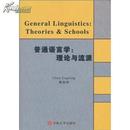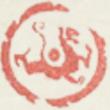
全新正版 普通语言学:理论与流派
¥ 26 ¥ 26 九五品
库存2件
北京海淀
认证卖家担保交易快速发货售后保障
作者陈劲松
出版社吉林大学
ISBN9787560151717
出版时间2010-01
装帧平装
开本32开
定价26元
上书时间2014-06-26
- 在售商品 暂无
- 平均发货时间 6小时
- 好评率 暂无
- 最新上架
商品详情
- 品相描述:九五品
- 商品描述
-
基本信息
书名:普通语言学:理论与流派
原价:26元
作者:陈劲松
出版社:吉林大学
出版日期:01/01/2010 00:00:00
ISBN:9787560151717
字数:
页码:
版次:
装帧:平装
开本:32开
商品重量:
编辑推荐
内容提要
Hl.语言理论
目录
PrefacePart 1 Language & LinguisticsChapter 1 What is Language?1 Definitions2 Distinctive Features2.1 Hierarchy2.2 Arbitrariness2.3 Duality2.4 Productivity2.5 Displacement2.6 Cultural Transmission3 Functions of Language3.1 Conceptualized Function3.2 CommunicativeFunction3.3 Meta-lingualFunctionChapter2 HistoryofLanguage1O rigin&Evolution1.1 Origin1.2 Evolution2LanguageChange2.1 ChangeofSound2.2 ChangeofStructure2.3 ChangeofMeaning2.4 Change of LexiconChapter 3 World Languages1 Genealogical Classification1.1 Family Relationships1.2 Language Families 2 Typological Classification2.1 Morphological Typology2.2 Syntactic TypologyChapter 4 Linguistics: Scientific Study of Language1 Saussure: Inception of Modem Linguistics1.1 Langue & Parole1.2 Signifier & Siguified1.3 Syntagmatic Relation & Paradigmatic Relation2 What is Linguistics?Part 2 Intra - linguisticsChapter 1 Phonetics & Phonology1 Phonetics1.1 Phonetic Alphabet1.2 Consonants & Vowels1.3 Phonetic Features1.4 Syllables2 Phonology2.1 Phonological Features2.2 Phonological Processes2.3 Phonological RulesChapter 2 Morphology & Syntax1 Morphology1.1 Word & Lexeme1.2 Morpheme: Morph & Allomorph1.3 Morpheme: Free & Bound1.4 Phonetic Representation of Morpheme1.5 Lexical Morphology & Inflectional Morphology2 Syntax2.1 Syntagmatic Relationship & Paradigmatic Relationship2.2 Grammatical Categories2.3 GrammaticalityChapter 3 Semantics & Pragmatics1 Semantics1.1 Semantics from Philosophical Perspective1.2 Semantics from Logical Perspective1.3 Semantics from Linguistic Perspective2 Pragmatics2.1 Deixis2.2 Pragmatic Implicature2.3 Cooperative Principle & Politeness Principle2.4 Presupposition2.5 Speech ActPart 3 Extra - linguisticsChapter 1 Psycholinguistics1 Biological Foundations of Language1.1 Brain Anatomy1.2 Brain & Language2. Psychological Processes of Language2.1 Language Acquisition2.2 Language Production2.3 Language Comprehension2.4 Language DissolutionChapter 2 Sociolinguistics1 Cultural Foundations of Language1.1 Kinship Terms1.2 Language & Cultural Identity1.3 Linguistic Relativity2 Language as a Social Parameter2.1 Language as a Code2.2 Social Varieties of language2.3 Lingua Franca2.4 Language & Race2.5 Language & SexChapter 3 Applied Linguistics1 Language Teaching1.1 Linguistic Assumptions in Language Teaching1.2 Methods in Language Teaching1.3 Syllabus Design1.4 Testing2 Language & Other Subjects2.1 Language & Philosophy2.2 Language & Literature2.3 Language & Computer SciencePart 4 Contemporary Linguistic SchoolsChapter 1 Transformational- generative Linguistics1 Methodology2 Main Hypotheses about Language2.1 The Relations between Language & Faculty2.2 Language Acquisition2.3 Linguistic Universals3 TG Grammar3.1 The Original Theory3.2 The Standard Theory3.3 The Extended Standard Theory3.4 The GB Theory & MP Theory Chapter 2 Systemic - functional Linguistics 1 Historical Retrospect1.1 Prague School1.2 London School 2 Systemic Grammar & Functional Grammar2.1 Systemic Grammar2.2 Functional Grammar Chapter 3 Cognitive Linguistics 1 Experiential View1.1 Lexical Category & Prototype1.2 Metaphor & Metonymy 2 Prominence View2.1 Gestalt Theory2.2 Figure - ground Division2.3 Schematic Representation 3 Attentional View3.1 The Organization of Conceptual Structures3.2 Construal Operations Bibliography
作者介绍
序言
Linguistics as an independent subject is relatively young in the tradi-tional sphere of humanities. The subject in the modern sense is believed tohave started from Saussure, the man who for the first time made a systemicinvestigation of the structure and function of language, therefore his work seta borderline between philology and linguistics. Philology is a cover term forthe traditional approach of linguistic study. It is biased towards the histori-cal interpretation of language with which classical documents are under-stood. This is true to scholars in both China and European continent of theclassical times. It is the birth of linguistics that the studY deviates from thephilological approach and is done in the ontological sense, namely, lan-guage is studied in its own right.
— 没有更多了 —












以下为对购买帮助不大的评价